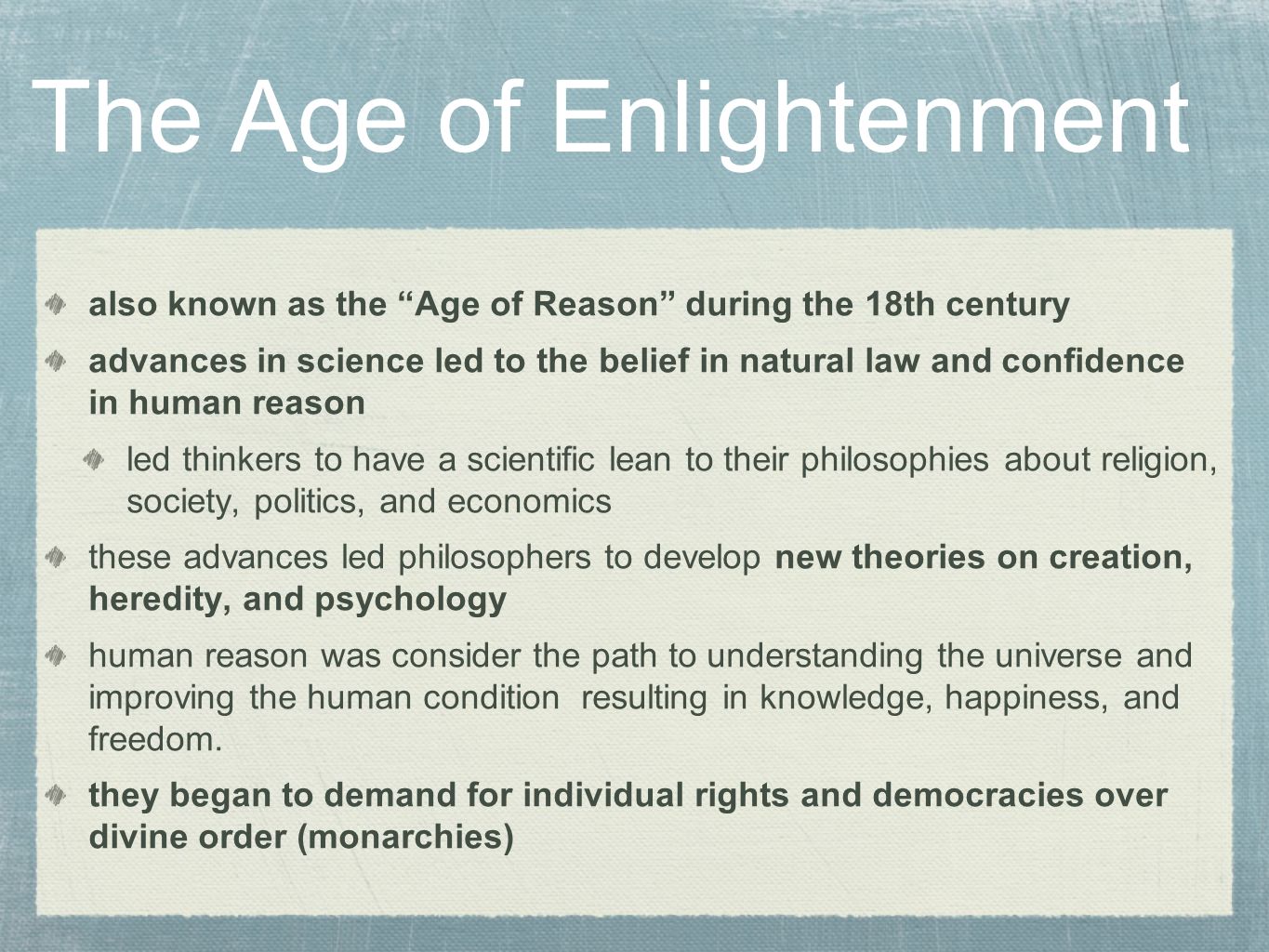

 Philosophies of History - From Enlightenment to Postmodernity
by
Philosophies of History - From Enlightenment to Postmodernity
by


1. The Enlightenment was a long period of intellectual curiosity, scientific investigation and political debate. It began in western Europe in the mid 17th century and continued until the end of the 18th century.
2. The Enlightenment was marked by a refusal to accept old knowledge, ideas and suppositions. Enlightenment writers and thinkers preferred to use logic, reason, experimentation and observation to reach conclusions.
3. The political Enlightenment examined the nature of human society, government and power. It also questioned the relationship between the state and individuals, who were assumed to be born with natural rights.
4. In France, the Enlightenment emerged in the early 1700s and was driven by writers and intellectuals called philosophes. Among their number were men like Denis Diderot, Jean-Jacques Rousseau and Voltaire.
5. The philosophes of the French Enlightenment were mostly dead by the late 1700s so did not play a direct role in the revolution. Their ideas and writings lived on, however, stimulating discussion, sparking curiosity and creating an environment where revolutionary ideas could emerge and flourish.